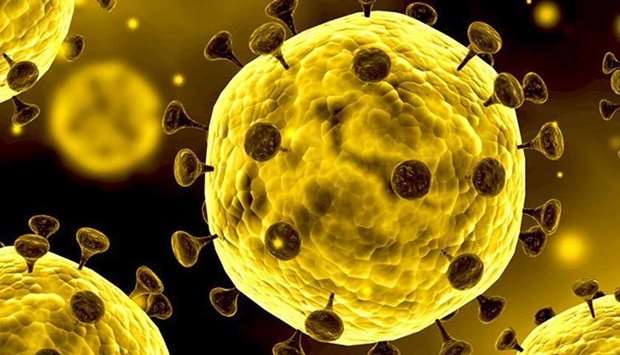India yesterday declared a new coronavirus variant to be of concern, and said nearly two dozen cases had been detected in three states.
The variant, identified locally as “Delta plus”, was found in 16 cases in the state of Maharashtra, Federal Health Secretary Rajesh Bhushan told a news conference.
The ministry said Delta plus showed increased transmissibility and advised states to increase testing.
On Monday, India vaccinated a record 8.6mn people as it began offering free shots to all adults, but experts doubted it could maintain that pace.
“This is clearly not sustainable,” Chandrakant Lahariya, an expert in public policy and health systems, said.
“With such one-day drives, many states have consumed most of their current vaccine stocks, which will affect the vaccination in days to follow.”
With the currently projected vaccine supply for the next few months, the maximum daily achievable rate is 4mn to 5mn doses, Lahariya added.
The effort has so far covered about 5.5% of the 950mn people eligible, even though India is the world’s largest vaccine producer.
A devastating second wave during April and May overwhelmed health services, killing hundreds of thousands.
Images of funeral pyres blazing in car parks raised questions over the chaotic vaccine rollout.
Since May, vaccinations have averaged fewer than 3mn doses a day, far less than the 10mn health officials say are crucial to protect the millions vulnerable to new surges.
Particularly in the countryside, where two-thirds of a population of 1.4bn lives and the healthcare system is often overstretched, the drive has faltered, experts say.
Maintaining the pace will prove challenging when it comes to injecting younger people in such areas, Delhi-based epidemiologist Rajib Dasgupta said.
The capital is also facing difficulties.
Authorities in New Delhi said more than 8mn residents had yet to receive a first dose and inoculating all adults there would take more than a year at the current pace.
India has been administering AstraZeneca’s vaccine, made locally by the Serum Institute of India, and a homegrown shot named Covaxin made by Bharat Biotech.
Last week, Serum Institute had said it planned to increase monthly production to around 100mn doses from July.
Bharat now estimates it will make 23mn doses a month.
Yesterday, television channel CNBC-TV18 reported that phase-3 data for Covaxin showed an efficacy of 77.8%.
Volunteers spread word on vaccines to poor
Volunteer groups are spreading the word about getting Covid shots to India’s poor and elderly, and ferrying some to vaccination centres in rickshaws and cabs following a surge in infections that killed hundreds of thousands. SEEDS, an organisation that does relief work during natural disasters, has focused its efforts on poorer communities, where it says many lack even basic information about the vaccines. “We found out that a whole lot of people above 60 weren’t even aware that they could vaccinated and protect themselves,” co-founder Dr Manu Gupta said. SEEDS members are going door-to-door in the poorer parts of Delhi and the villages of north and west India, helping citizens register their details on the government’s vaccination portal and transporting some of them for free to inoculation centres. A second NGO, Robin Hood Army, has partnered with Uber to provide free rides to vaccination centres in Delhi and Mumbai. Its co-founder, Neel Ghose, urged the government to speed up the process by taking its vaccination drive to people’s homes. “For this to be really effective, it needs to be like the way we thought about polio 20 years back, where we reached the doorsteps of people with vaccines and not the other way around.”

Corona Covid Coronavirus Covid structure
